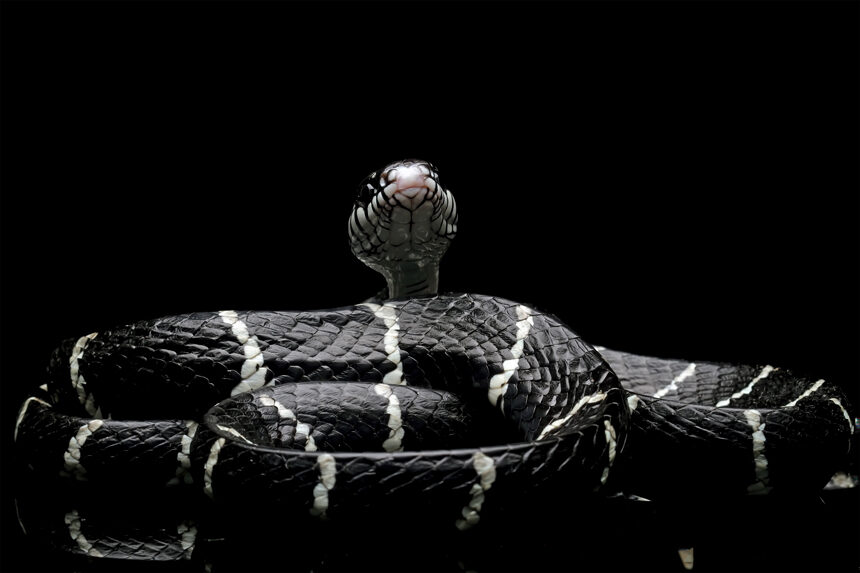Senior managing editor and logophile Andy Hollandbeck reveals the sometimes surprising roots of common English words and phrases. Remember: Etymology tells us where a word comes from, but not what it means today.
They’re limbless, slithering reptiles, and the stuff of nightmares. And they go by several names. And the history of these names shines a light on some mysteries of the English language.
The word snake has been around for a long time. It was first the Old English snaca and then in Middle English became snake.
Only three species of snake are native to Britain, and only one of them is venomous. You’ll find relatively harmless grass snakes and smooth snakes, but the venomous type was called in Old English the næddre and in Middle English the naddre. But between the 14th and 16th centuries, English speakers misheard “a naddre” as “an adder” often enough that adder became the regular word for the reptile, which is unfortunate because these creatures are horrible at addition.
Adder became a common word for “venomous snake,” and as the British Empire expanded throughout the world, other vipers were given the name too. That’s why you can find puff adders in northern Africa and the Arabian peninsula, night adders in central and southern Africa, and the all-too-aptly-named death adders in Australia.
All adders are also vipers, a word adopted into English in the 12th century to describe a snake believed to be venomous, directly from the Latin vipera. Strangely, vipera has nothing to do with a snake’s ability to kill but with how it gives life: It’s believed to be a contraction of vivipera, from vivus “living, alive” + parire “to produce, bring forth.” Most snakes lay eggs, but in cooler climates — like where Latin was the common tongue — some snakes give birth to live young.
Which leaves us with serpents. While the word’s etymology is straightforward — it’s from the Latin word for “snake,” serpentem, which is related to serpere “to creep” — a closer look demystifies a bit of the variety of the English language.
In linguistics, there is a phenomenon called debuccalization or deoralization. (Buccal is from the Latin for “cheek,” and oral from the Latin for “mouth.”) In broad terms debuccalization occurs when a sound usually formed in the mouth is formed in some other part of the speaking apparatus — most often the throat area.
This makes more sense when you find yourself doing it: Have you ever heard the song “I’m Getting Nothing for Christmas”? Well, you probably haven’t seen it written like that because that’s not how it’s properly sung. Normally, the tt in getting and the th in nothing are created by briefly cutting off the air at the back of the throat, and the g is dropped in both -ings. The result sounds more like “I’m geh-in nuh-in for Christmas.” That thing you did in the middle of getting and nothing, using your throat instead of your tongue? That’s debuccalization.
Sometimes debuccalization takes place on a larger and longer scale, enough that it alters the language. In very early Greek (perhaps even before it could be called Greek), s sounds were sometimes debuccalized, depending on what sounds immediately preceded and followed it, and became h sounds. Latin, however, didn’t undergo the same debuccalization.
This is why the Greek hemi- and Latinate semi- both mean “half.” It’s also why natural rock salt (from the Latin sal) is called halite (from the Greek hals), why a group of six musicians is a (Latin) sextet, but a six-sided polygon is a (Greek) hexagon.
But more to the point, it’s why someone who studies serpents (or reptiles more broadly) is a herpetologist, from the Greek herpeton, literally “creeping thing.” If you go back far enough in time, the Greek herpeton and Latin serpentem evolved from the same word.
Herpeton is more broadly “reptile,” though; the Greek word for “snake” is ophis, which is why an overwhelming fear of these scaly slitherers is called ophidiophobia.
Become a Saturday Evening Post member and enjoy unlimited access. Subscribe now



